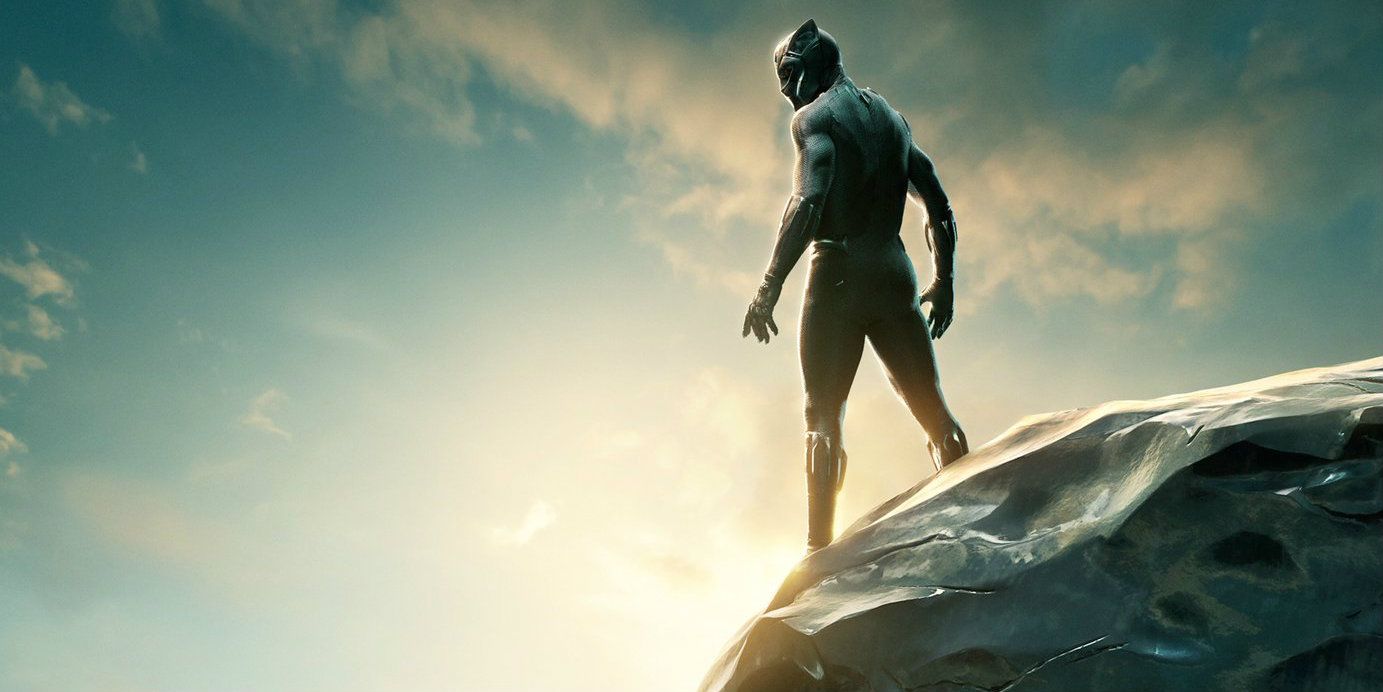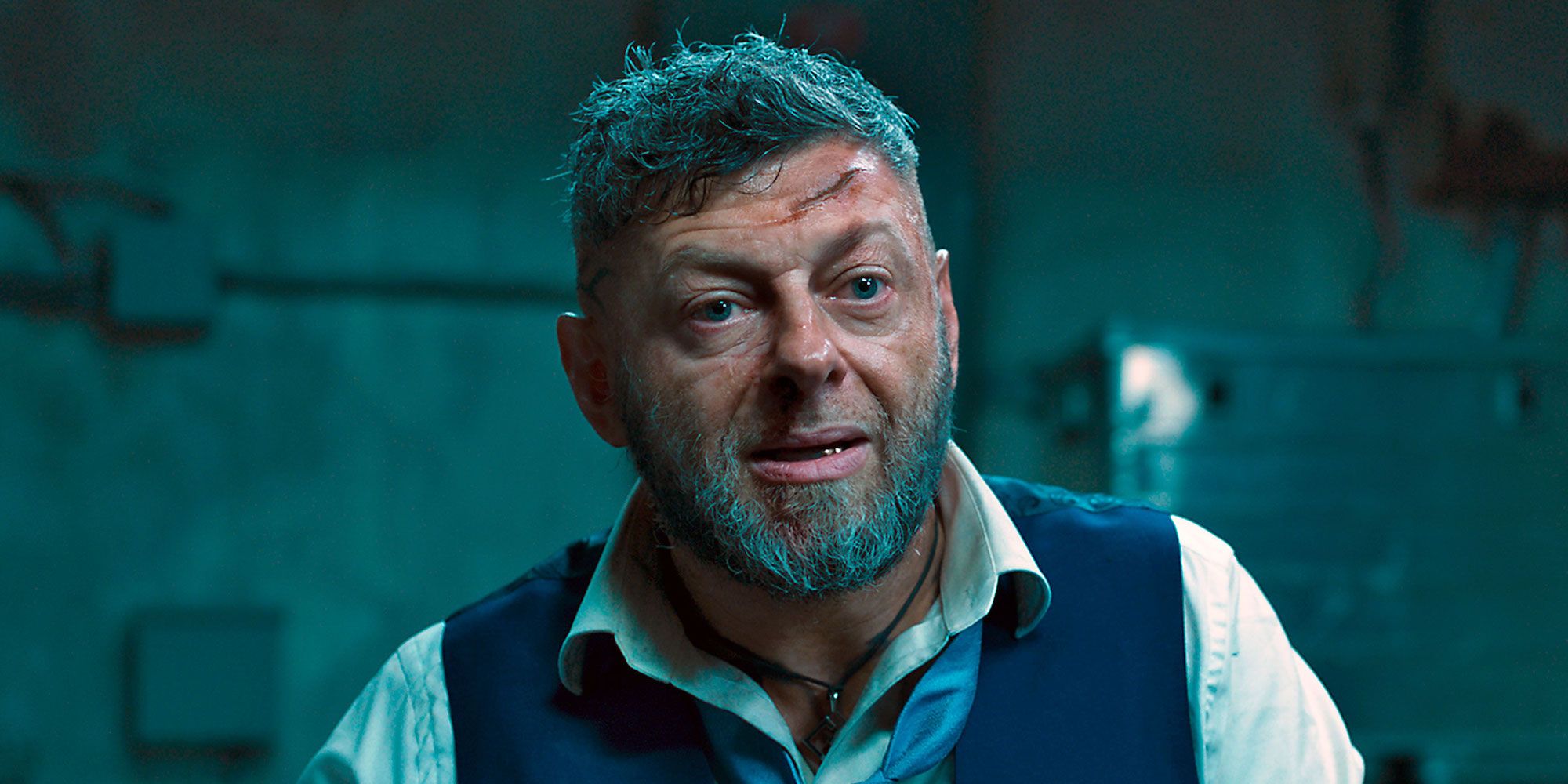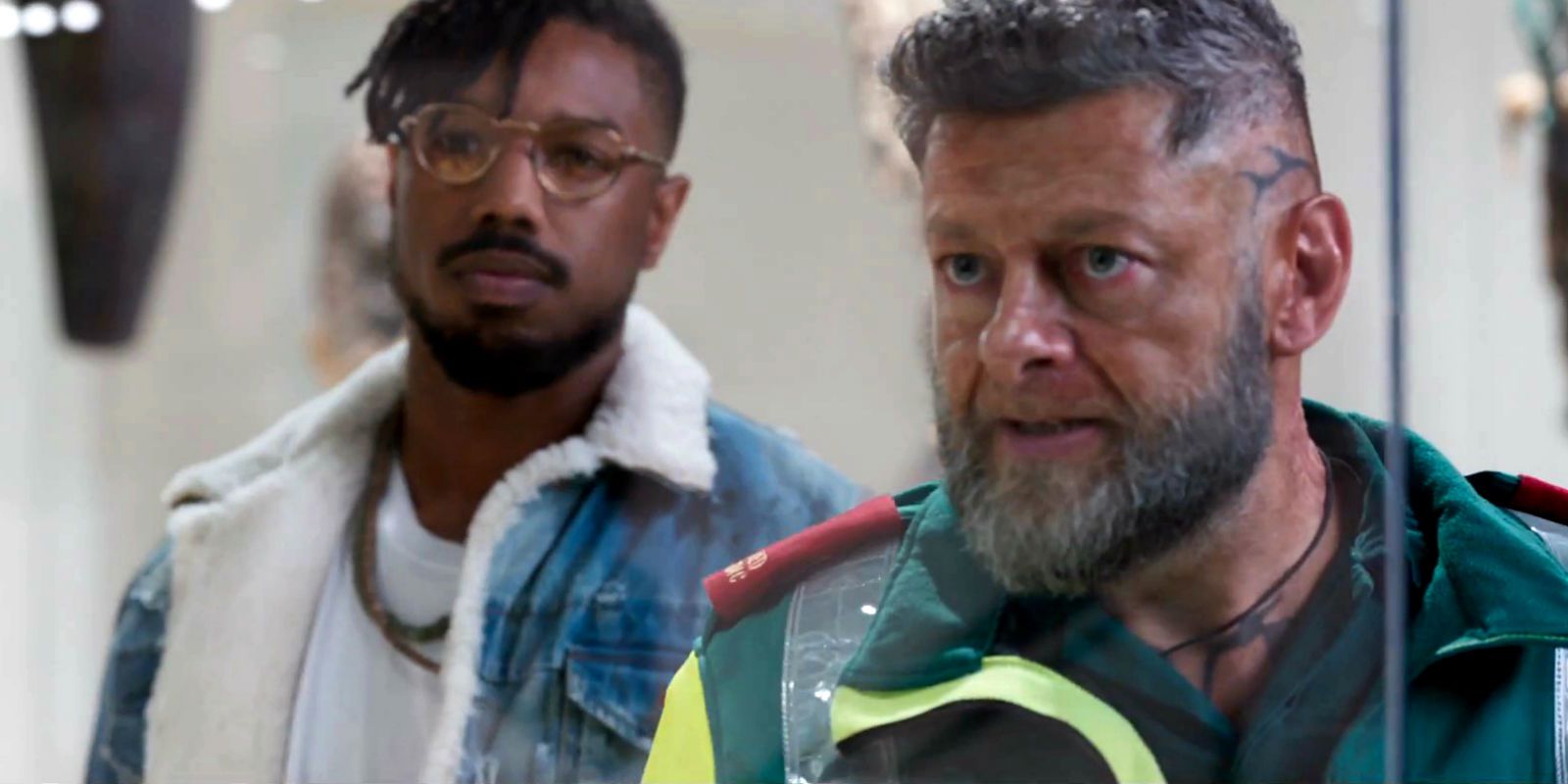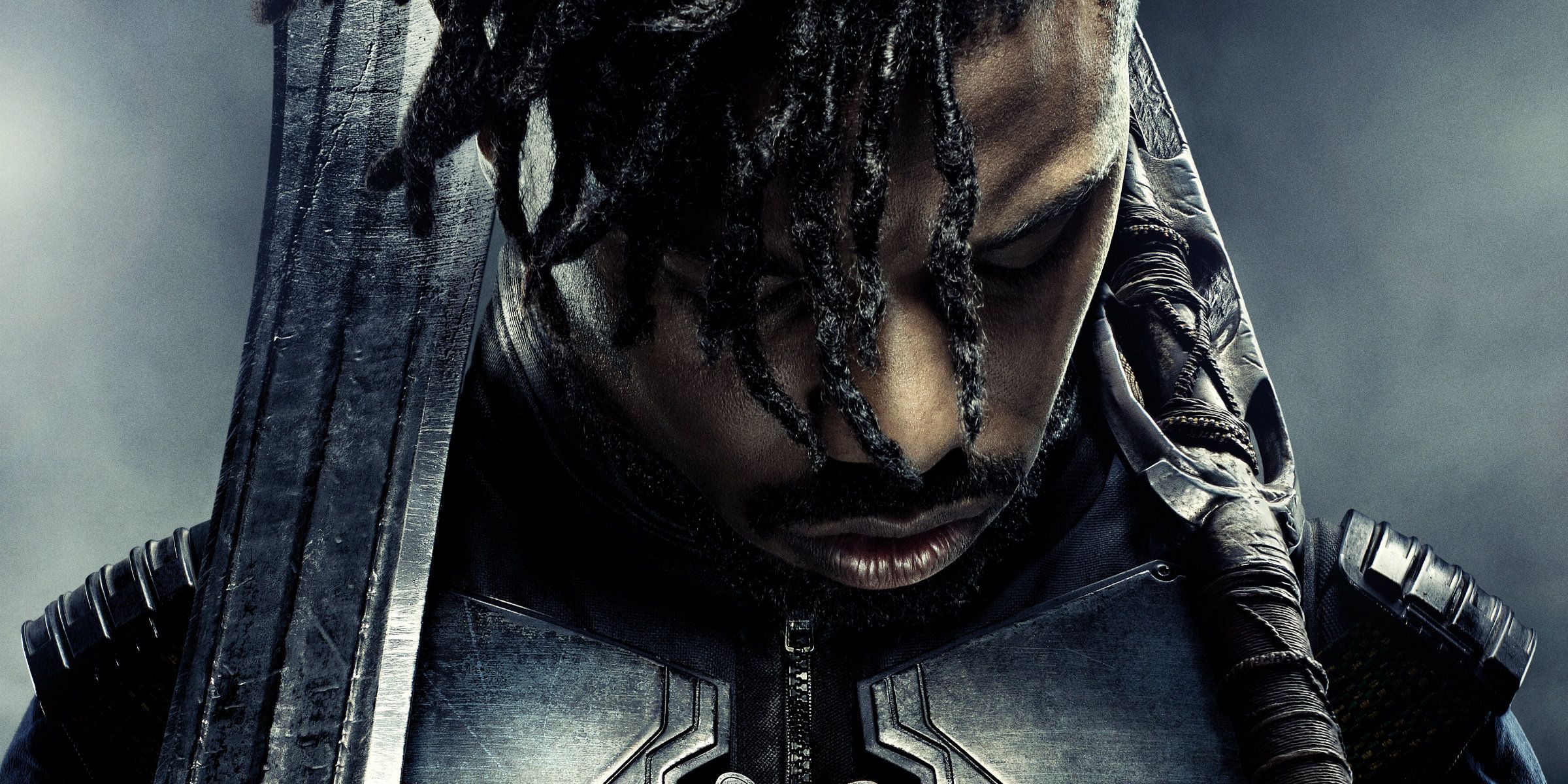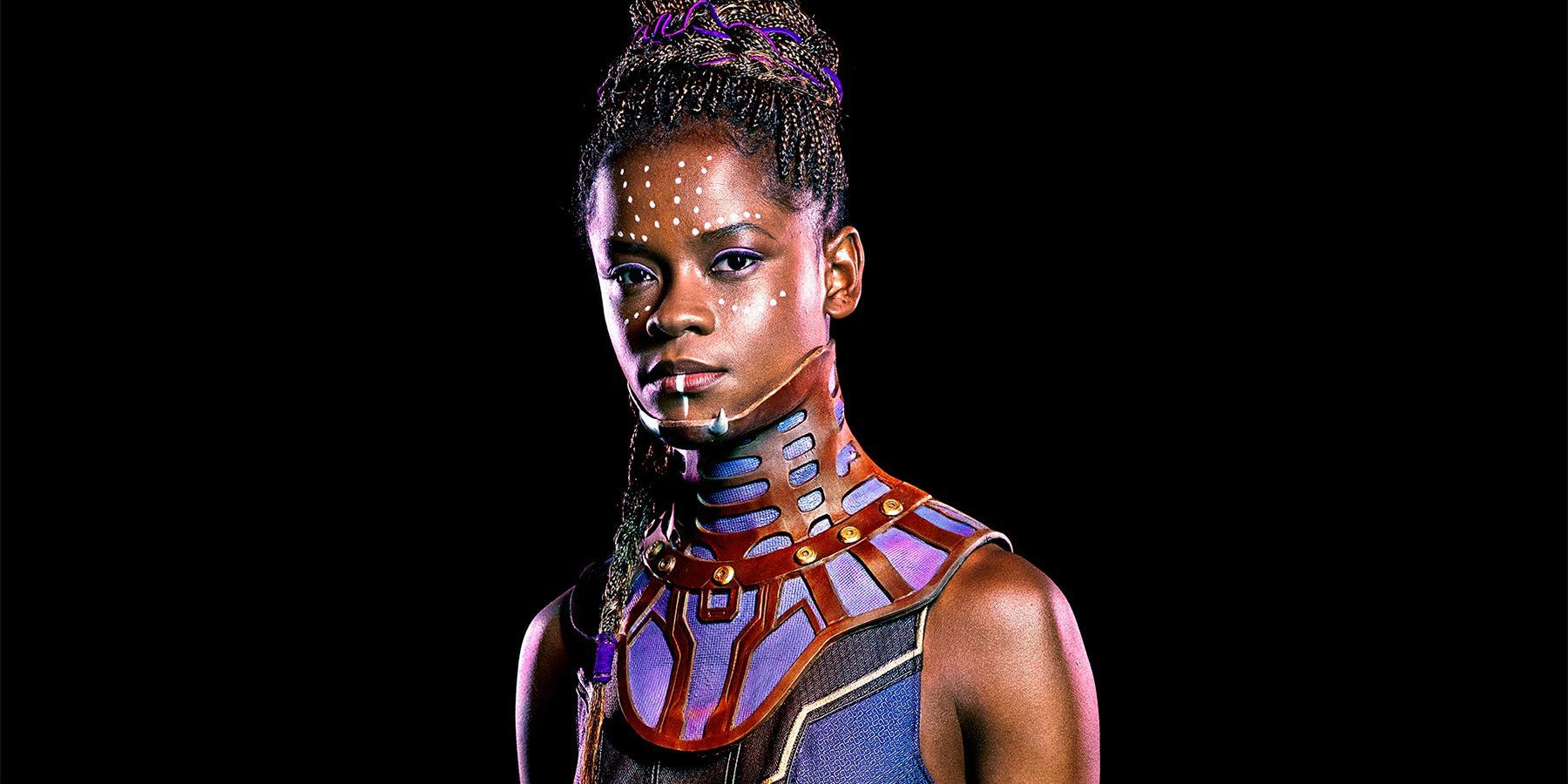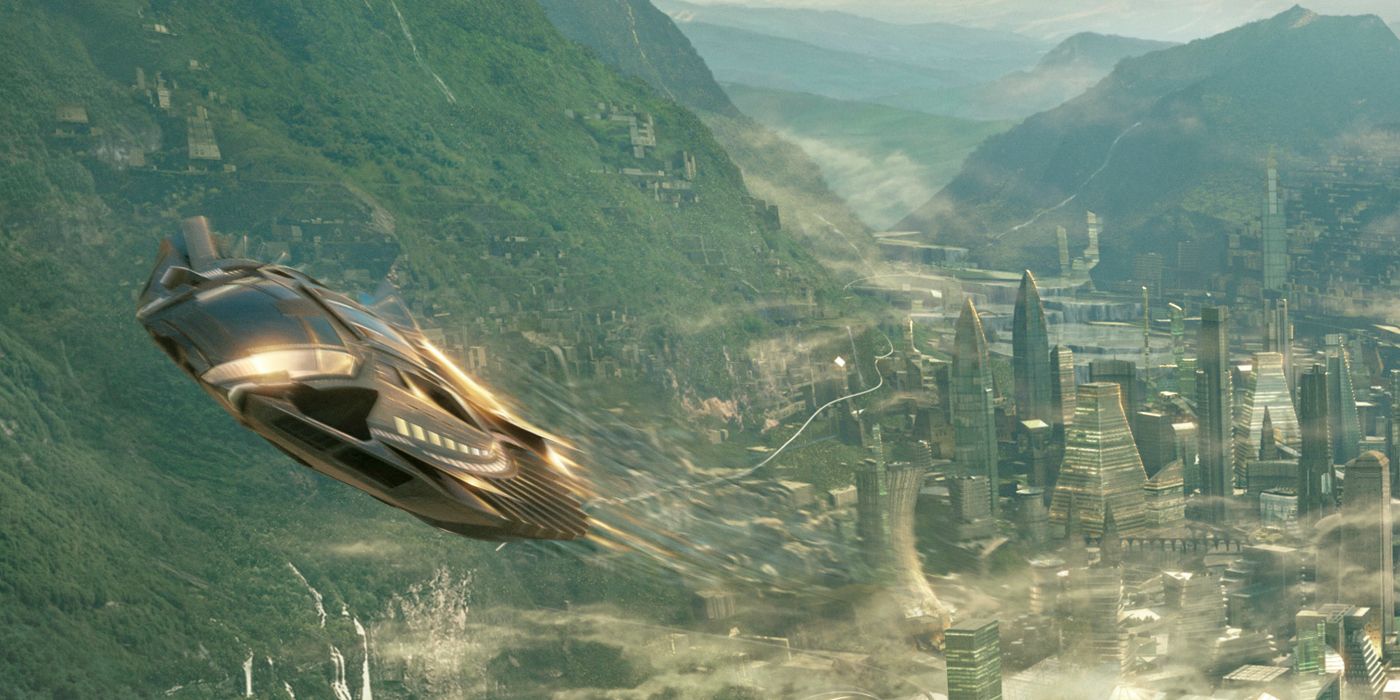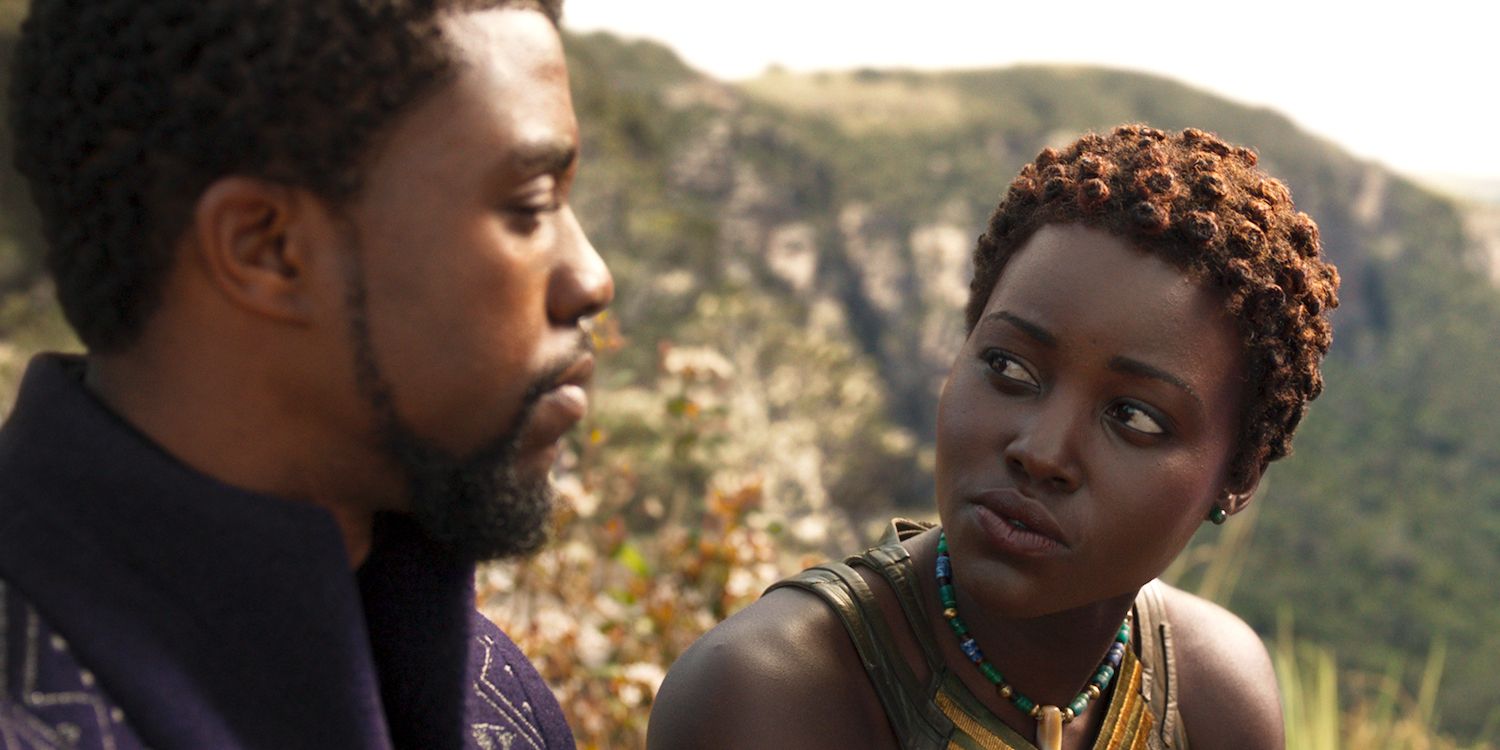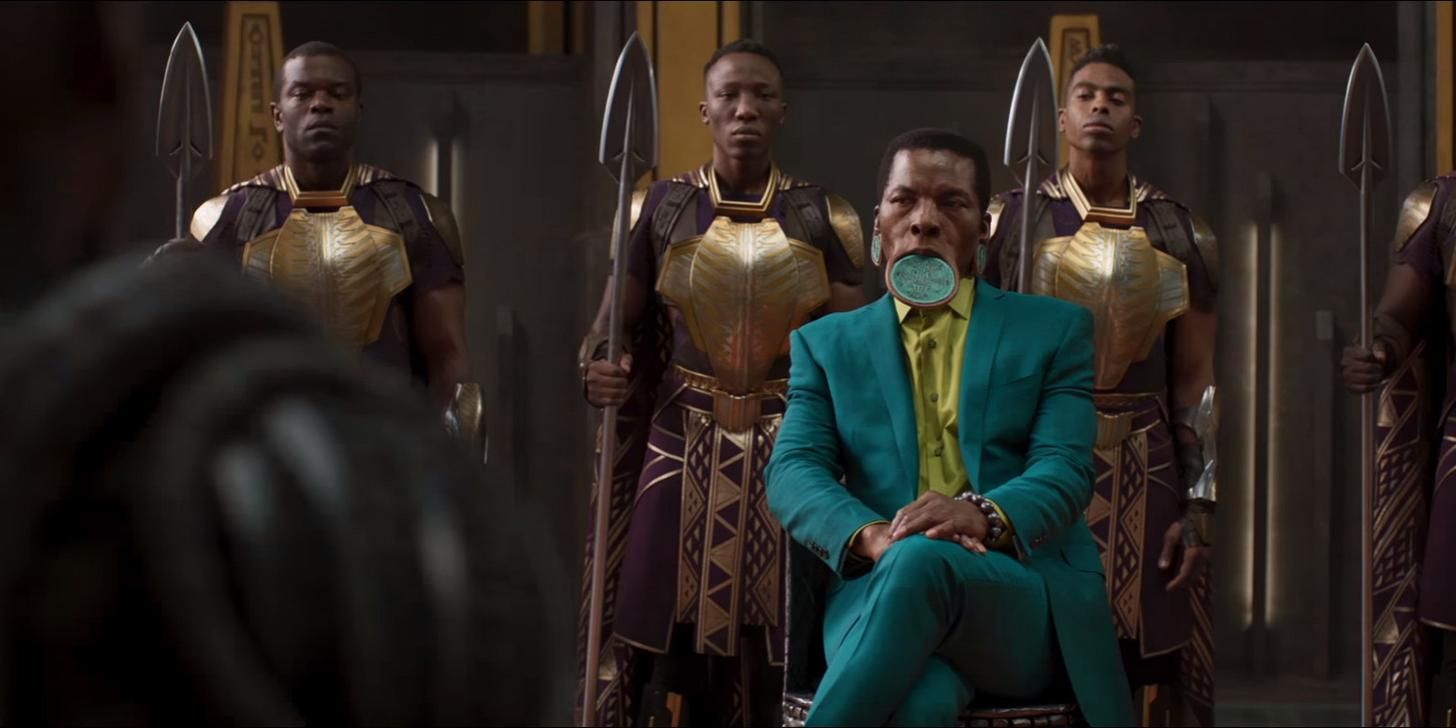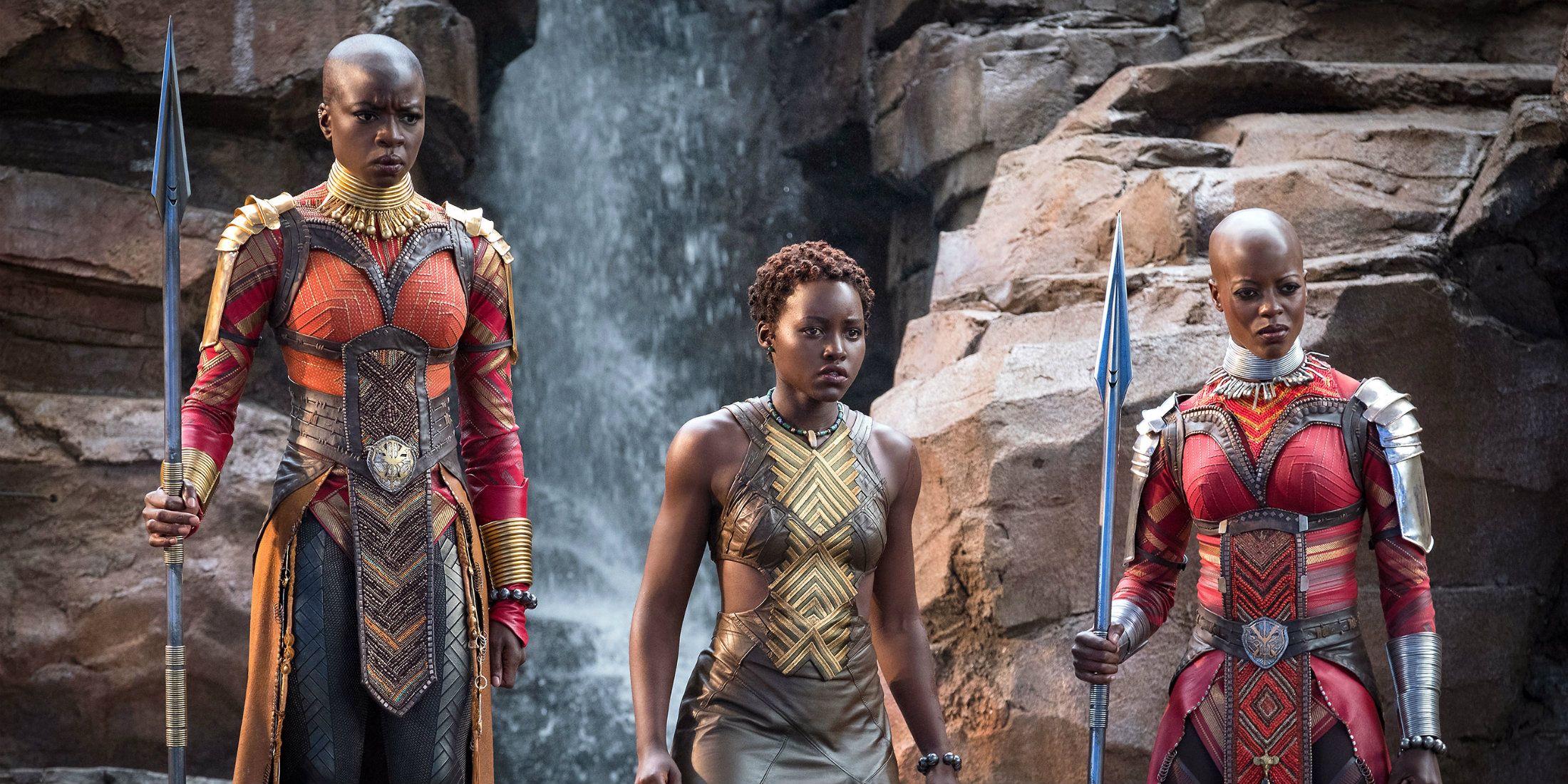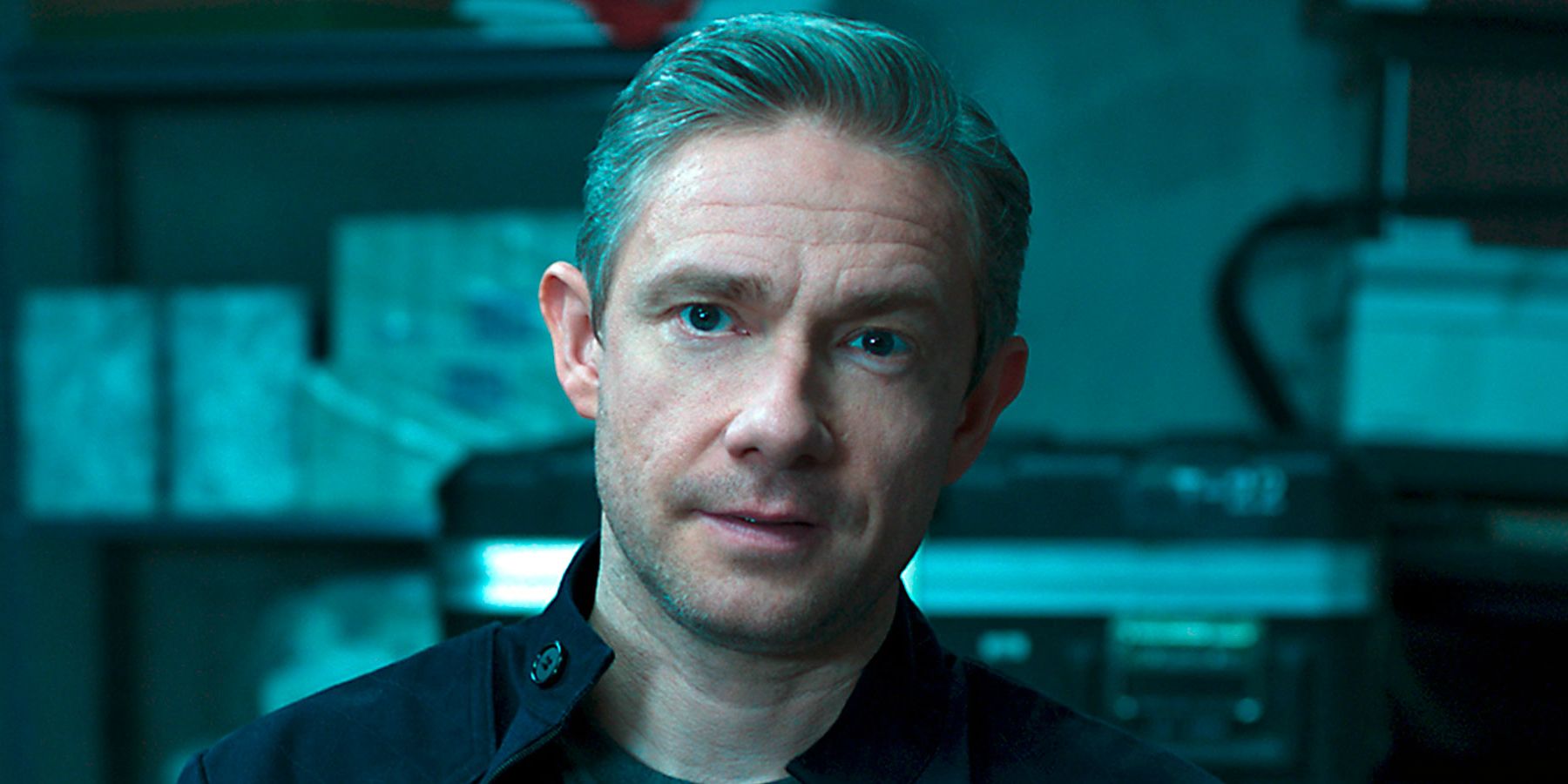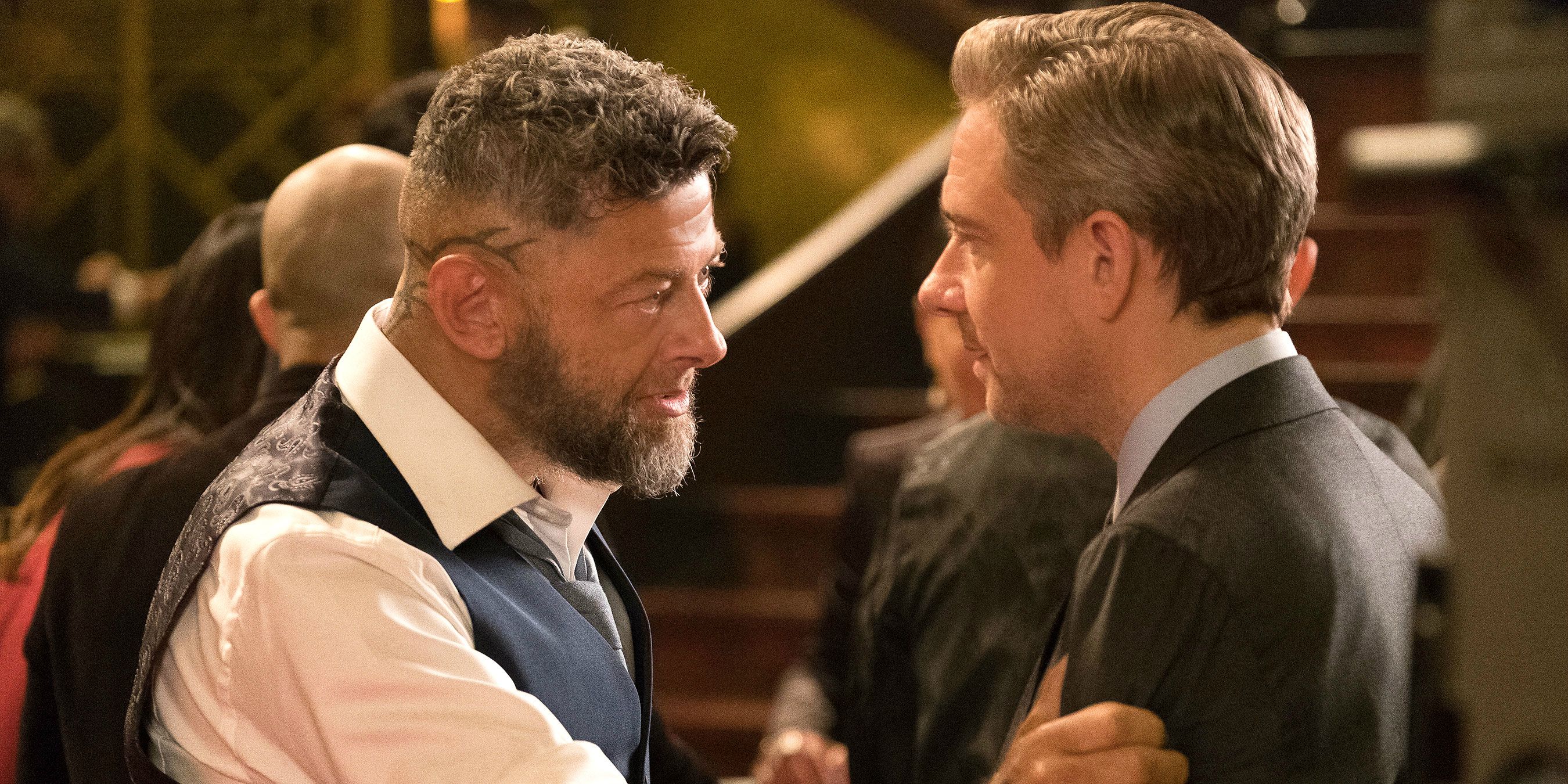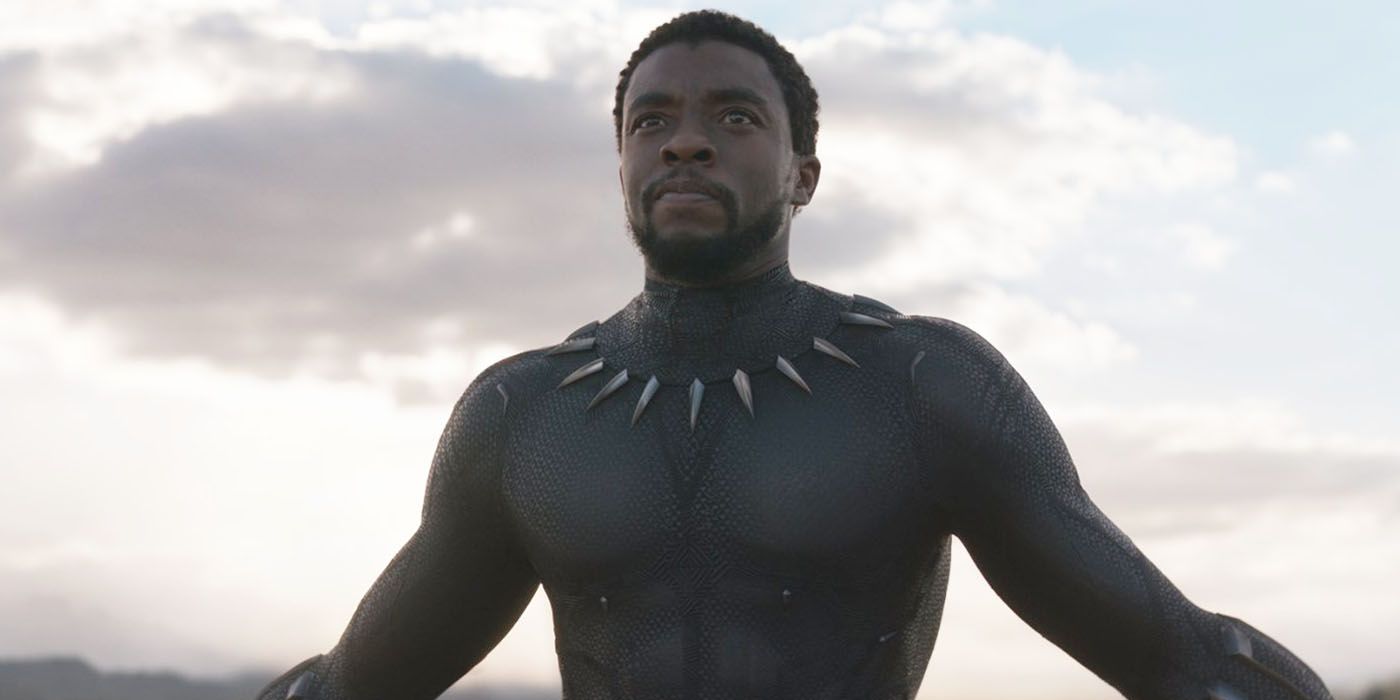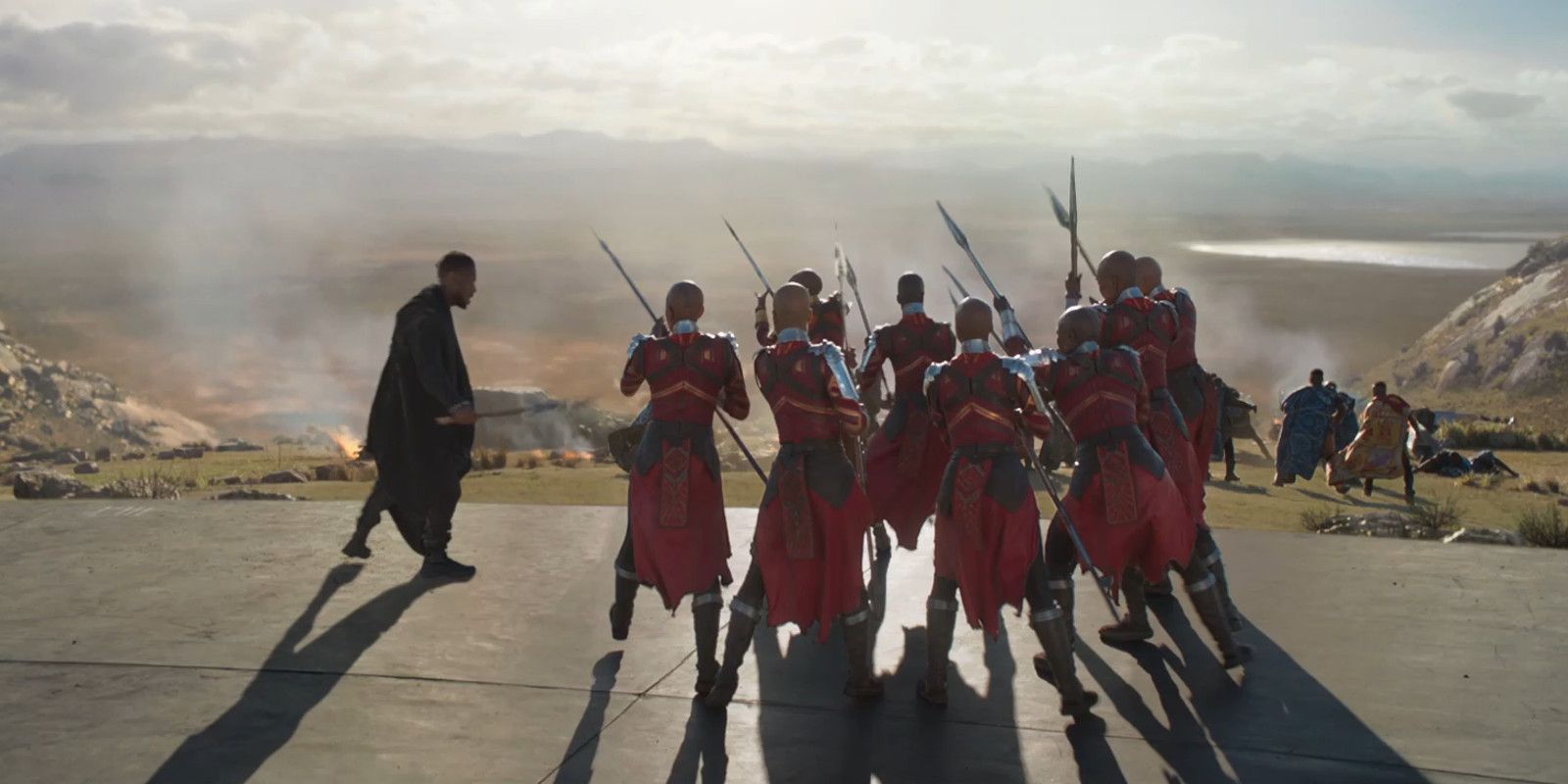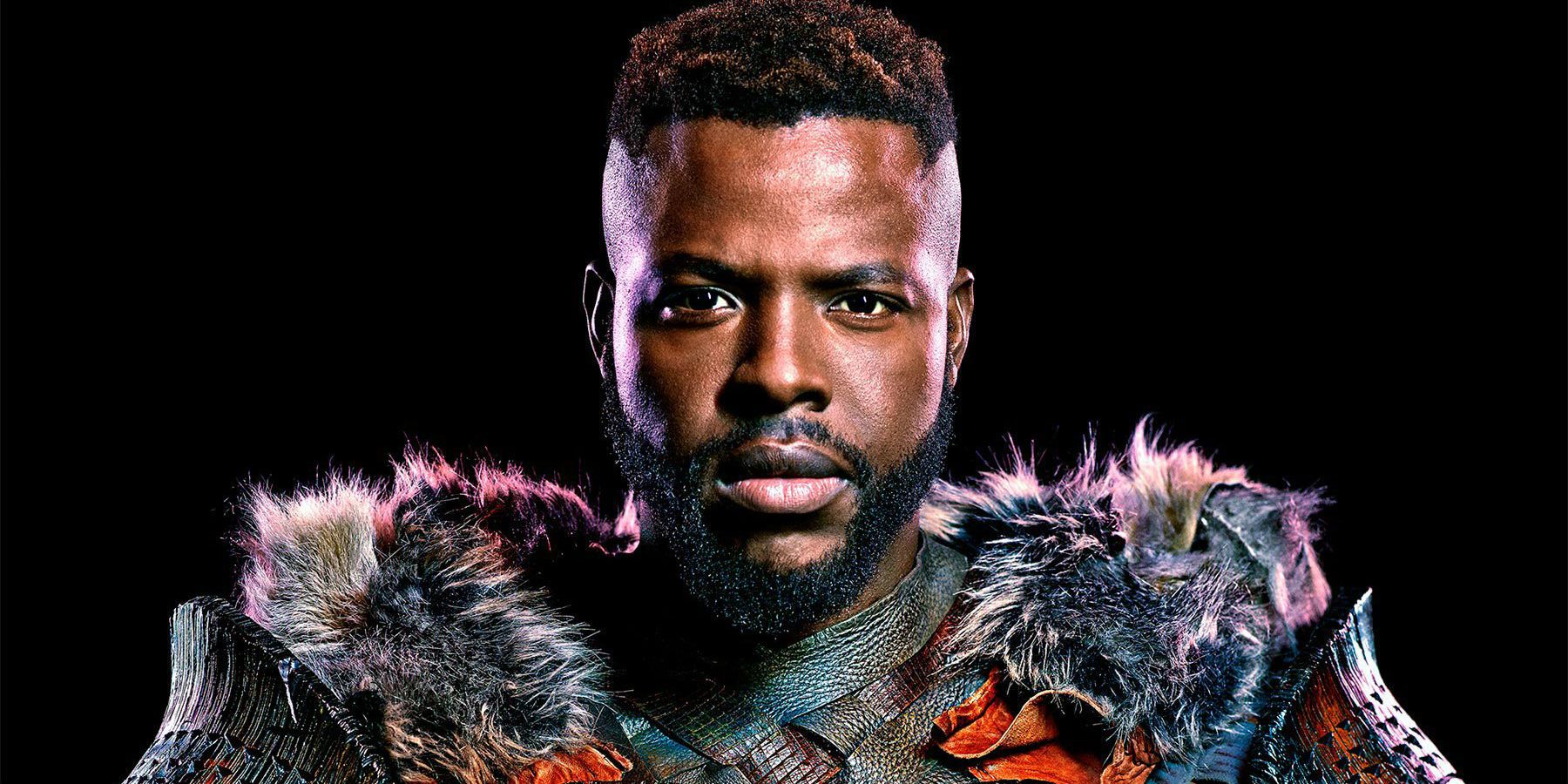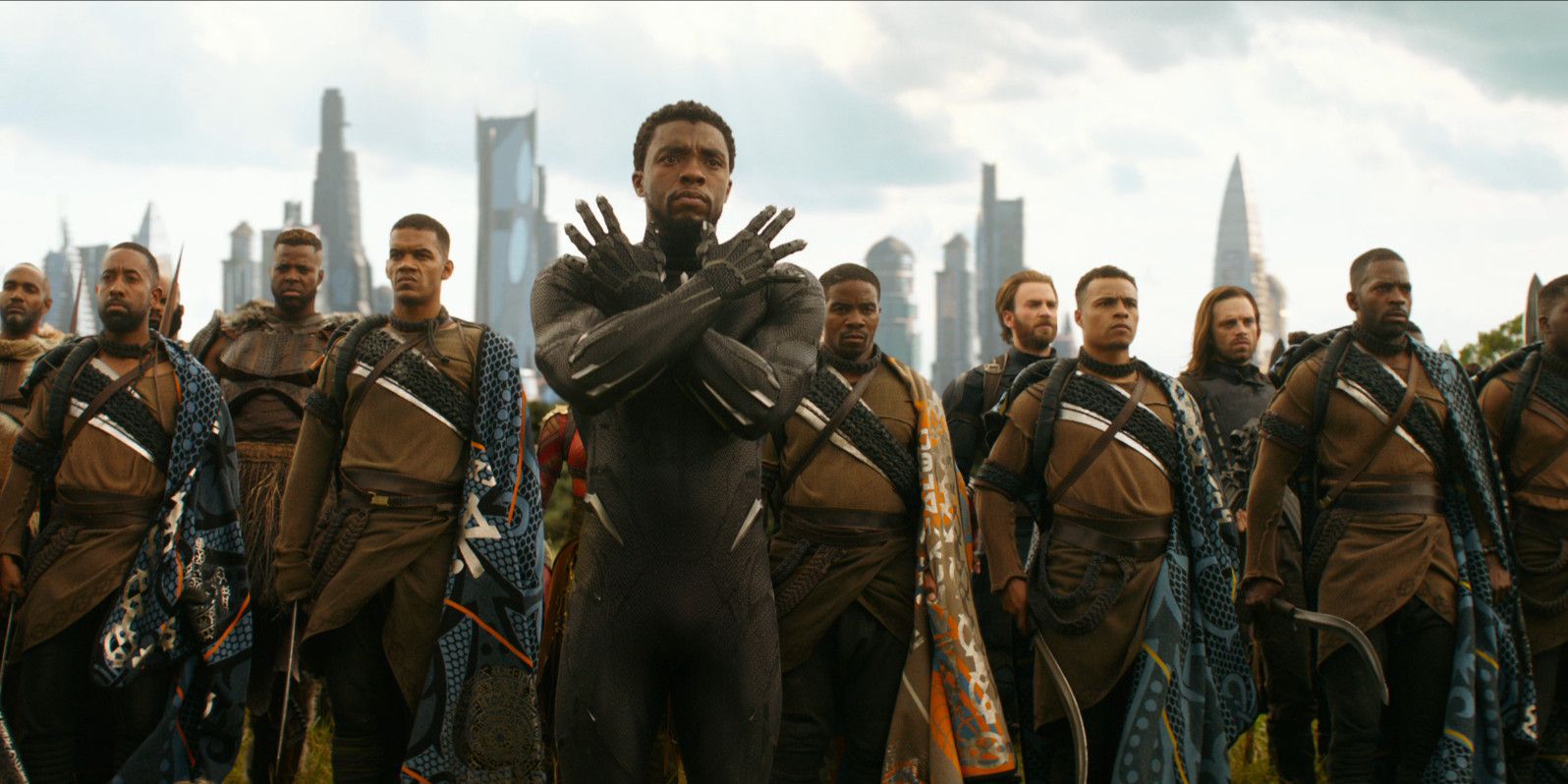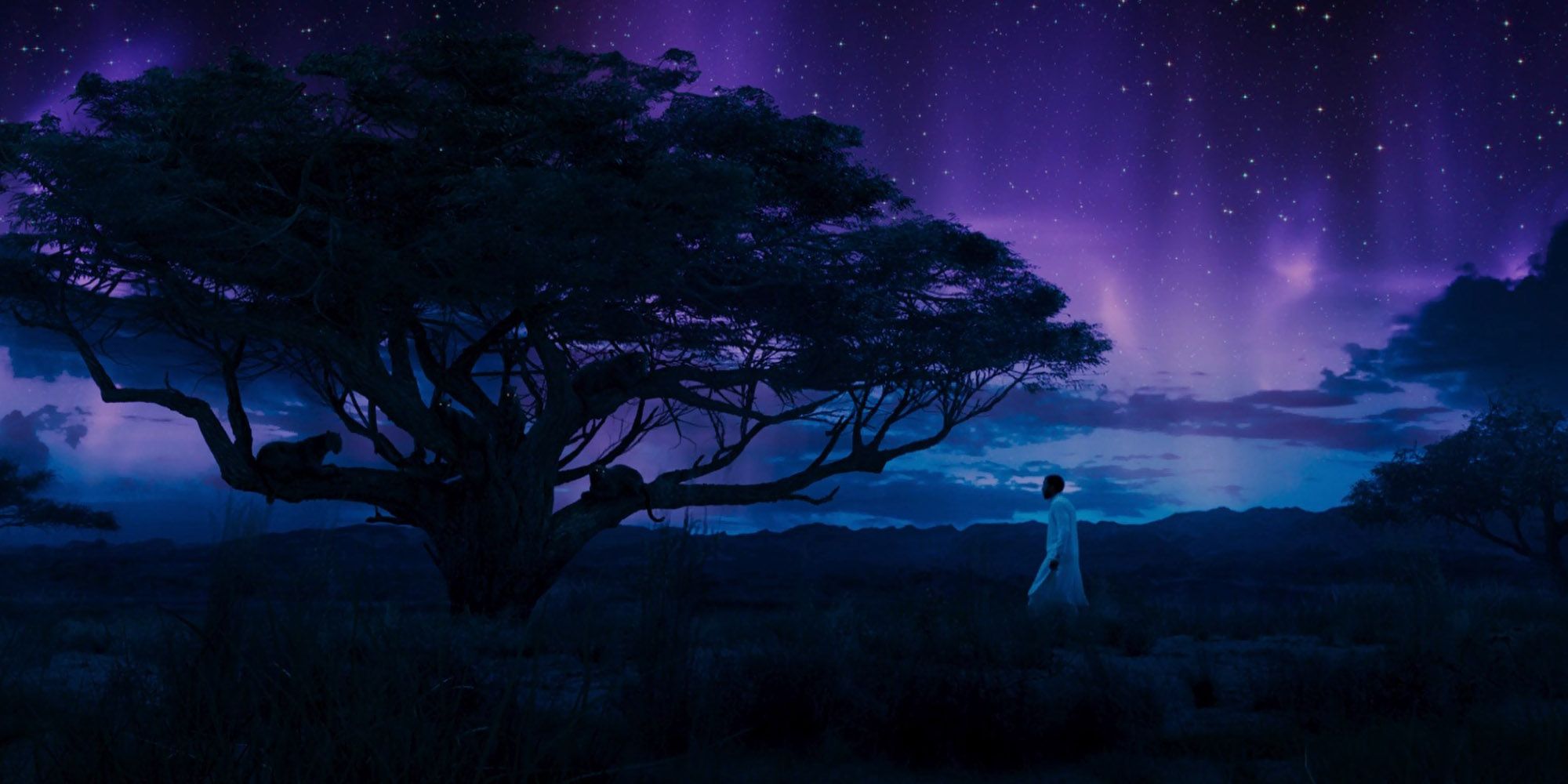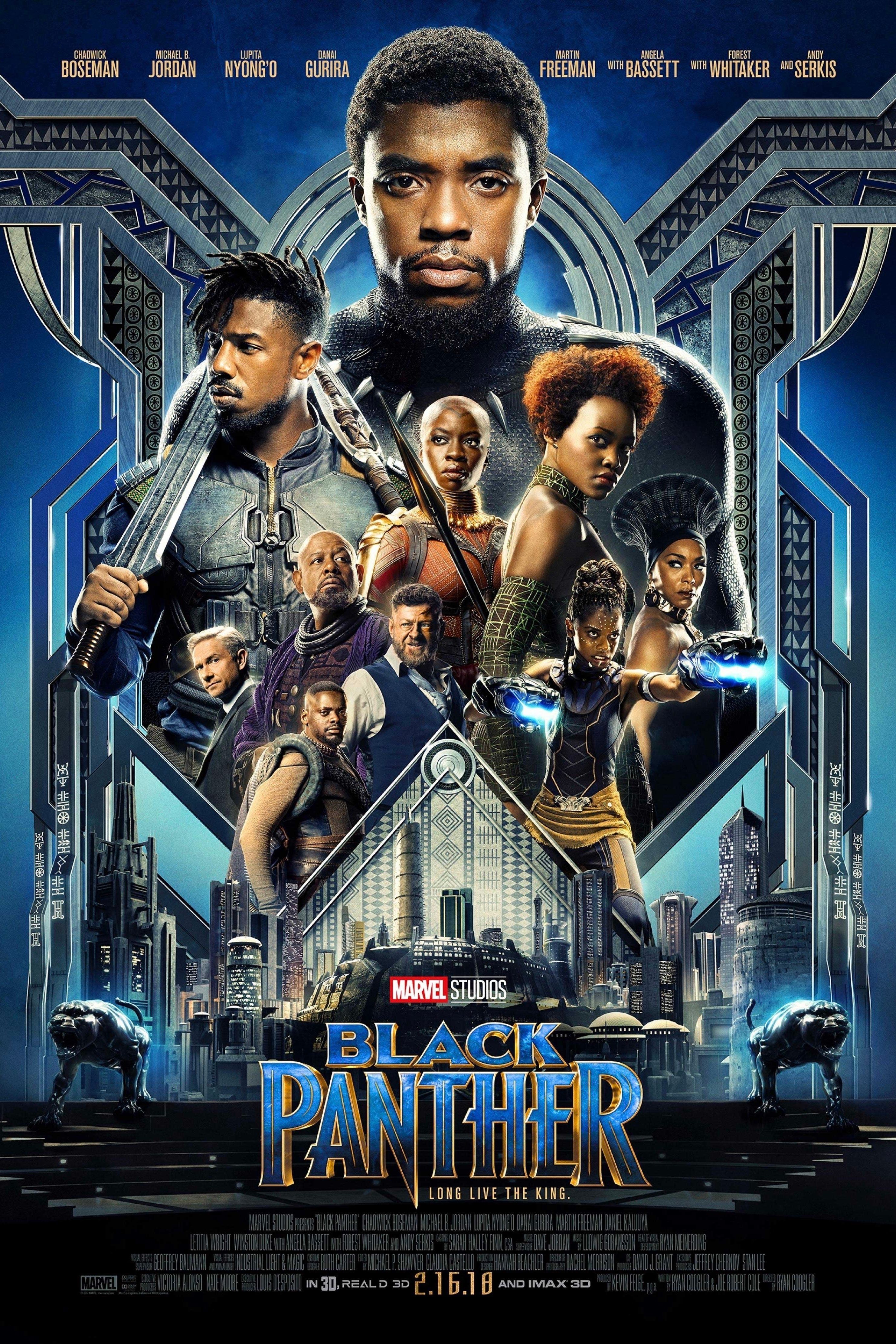In just a couple more weeks, Marvel fans are in for a wild new ride in the form of Black Panther, the first live-action solo movie starring Chadwick Boseman as T'Challa, the king and protector of the mysterious African nation of Wakanda. Directed by Ryan Coogler (Creed) and starring an amazing ensemble cast - including Michael B. Jordan, Lupita N'yongo, Danai Gurira, Forest Whitaker, Letitia Wright, Andy Serkis and one of this year's Best Actor nominees, Daniel Kaluuya - Black Panther is expected to have a massive $100-120 million opening weekend, and is already getting rave reactions from those who attended the first screenings. Needless to say, we're excited.Last year, Screen Rant was fortunate enough to visit the set of Black Panther, where we saw villain Ulysses Klaue (Serkis) being busted out of jail, and got a chance to speak to the cast and creative voices behind Marvel's next big blockbuster. You can check out our full coverage from the set visit here, but here's a summary of the 15 most exciting and intriguing things we learned on the set of Black Panther.This Page: Klaw, Killmonger, Shuri and The Golden City
Klaw Has a Personal Relationship With Wakanda
Captain America: Civil War didn't just introduce Black Panther; it also introduced one of his greatest nemeses, Ulysses Klaue - an arms dealer with a particular interest in Wakanda's rare metal, Vibranium. Andy Serkis returns as Klaue in Black Panther, and Serkis told us that he has a "love/hate relationship" with the secretive and well-guarded nation of Wakanda, as one of the few outsiders who has actually visited it. "We decided that Klaw, we would make him South African," Serkis explained. "A very strong Afrikaans, quite bullish... it gives him a real edge."
Obviously Wakanda doesn't exist in the real world, but Black Panther nonetheless draws on African politics, and Klaue's heritage is part of that. "It fits very well politically that he was of South African descent at a time when, of course, he grew up through Apartheid," Serkis added. Wakanda is seen by the rest of the world as a third-world country of little note, since the Golden City and its stunning technological advancements are kept well-hidden, but Klaue knows better. "He certainly has discovered things about it that nobody else has," teased Serkis. "He's one of the few people who's been into Wakanda and he reveals quite a lot about it."
Klaue and Killmonger Are Not Buddies
Multiple antagonists in one movie? The natural assumption is that Klaue and Killmonger end up working together - especially since the trailer shows the two of them side-by-side in disguise, apparently pulling off some kind of heist. But Serkis assured us that Klaue isn't the kind of man who values friends or allies:
"Klaw doesn't really trust or work with anybody; he is his own man. He does deals with people, he interacts, but he doesn't form allegiances or alliances with anyone. Ultimately, he's a lone wolf. He has these pop-up groups wherever he happens to be in the world. So he and Killmonger aren't working together, as such."
Serkis described his character as "quite nihilistic," having clawed (pun intended) his way up first through the army, and then through his career as a mercenary. However, he is not entirely without a moral code: "What he doesn't like is hypocrisy; he absolutely despises hypocrisy." Perhaps it will be some kind of hypocrisy on Killmonger's part that ultimately drives a wedge between Black Panther's enemies.
Killmonger is a "Revolutionary"
Though Marvel is often criticized for its villains, it's fair to say that they've had a broad range of motives - from Obadiah Stane's ambition and greed, to Ronan the Accuser's religious zealotry. Michael B. Jordan's Erik Killmonger is another Marvel villain who acts as something of a mirror for the protagonist (they have very similar-looking suits of armor), but he's also something of an outsider to Wakanda - as evidenced by his American accent. When asked to describe his character in one word, Jordan told us that he is a "revolutionary," and also said that "hopefully Killmonger is somebody you guys can root for, too."
Shuri is the Smartest Person in the World
Move over, Tony Stark: it turns out that Wakanda has been hiding a technological genius who is even smarter than Iron Man himself - and she's just 16 years old. T'Challa's sister Shuri (played by Letitia Wright, who also starred in the latest season of Black Mirror) is the head of the Wakanda Design Group, which means that she provides her brother with everything from high-tech armor to fast cars (which she also drives, remotely). Producer Nate Moore told us that Shuri is a little less serious than her brother, but that doesn't mean she's all comic relief. "She, like T'Challa, lost her father in the last film," Moore reminded us, while also adding that as the head of the Design Group, she has a lot of responsibility on her young shoulders:
"Part of that responsibility is keeping that technology secret while developing these amazing gadgets. As the walls start to close in, what does she have to do to make sure what she's done stays out of the wrong hands?"
Golden City is 20-25 Years Ahead of the Rest of the World
It's not just Shuri who's a technological wizard. T'Challa's hidden home in Wakanda, Golden City, is "just" 20 to 25 years more advanced than the rest of the world, according to Moore, which means that it's both fantastical but also somewhat grounded. Wakanda's prosperity and technological advancement is owed to two things: the Vibranium upon which Golden City is built, and the Wakandans' decision to stay secluded from the turmoil and warfare of the rest of the world. As Moore explained, the two things are connected:
"[Wakanda knew that] if people knew they had Vibranium, which they do, they were going to be conquered or at least be at war forever. So they did the smart thing. They hid that fact, so nobody knows that they have this stuff. That's why they've been able to have these advancements. They don't spend money on war. They don't spend money defending themselves constantly. They just spend money on infrastructure which is something... that will feel topical. Just that idea of what happens when you're not 24/7 trying to fend off the rest of the world."
Wakanda has essentially left the rest of the world behind, and has done so by allowing the rest of the world to believe that it is a poor African nation with nothing to boast of. "That's allowed them to build something amazing."
Nakia is a War Dog Whose Allegiances Might Be in Question
Captain America: Civil War introduced the Dora Milaje - the personal bodyguards of Black Panther, who will also be returning in the solo movie. However, the movie will also introduce another military force: the War Dogs, or Hatut Zeraze, as they were called in the comics. Lupita Nyong'o's character, Nakia, is a member of the War Dogs, and she described the group as:
"Wakanda's CIA agents. [Nakia]'s job is to spy around the world and report back to Wakanda to keep Wakanda safe and keep Wakanda informed."
Nyong'o also described Nakia as being "in service to her country," and said that her arc during the movie involves deciding whether she's more loyal to her country and her king (not everyone in Wakanda is happy about T'Challa's ascendancy, and his decision to get involved with the outside world). Interestingly, this may mean that Nakia ends up becoming an antagonist instead of an ally for T'Challa - especially since, in the comics, Black Panther disbanded and exiled the War Dogs.
The Wakandan Language is IsiXhosa
One of the challenges of making a movie set in a fictional African country is deciding which cultures of real African countries to draw upon - and Black Panther addresses this challenge by pulling inspiration from all over the continent. Most of the dialogue is in English (for the sake of not filling the movie with subtitles), but Lupita Nyong'o told us that the movie also features isiXhosa, one of the languages of South Africa, which features click consonants as part of its alphabet.
"The Wakandas are super, super advanced... advanced and isolated! One of the ways they keep to themselves is with language. So it's an adventure to actually pick up this language because it's actually one of the hardest languages to learn because of the clicks and stuff which faded away the further you get from South Africa on the African continent. So it's super exciting to challenge ourselves to speak the language, but the film is definitely predominantly in English."
The Dora Milaje are Not Betrothed to T'Challa
When adapting comic books that have been around for decades, Marvel Studios has naturally made a few changes, and Nyong'o told us that "the women as we meet them are departures from what we know of them in the comic books." Among the changes made to the women of Wakanda is the removal of the Dora Milaje's "betrothal" to Black Panther - which essentially designates every one of them as potential future wives for Wakanda's protector. Producer Nate Moore told us that this aspect of the Dora Milaje was deliberately left out of the movie, on account of being "creepy":
"You know, that was sort of part of the original Christopher Priest run where they were all betrothed which we felt wasn't necessary to tell the story of the Dora and in a way we all kind of rejected as being a little creepy. So we will not be exploring that."
That's not to say, of course, that the Dora Milaje won't have a close relationship with the man they're charged with protecting. Moore also said that Ryan Coogler set out to explore "the depth of the emotional connections between T'Challa and those individuals," so that will be an important part of the movie.
Everett Ross is Not a Comic Relief Character
Everett Ross (Martin Freeman) isn't an easy character to love - coming across as a fussy bureaucrat with little love for superheroes when he debuted in Captain America: Civil War. Ross returns in Black Panther and is exposed to the wonders of Wakanda - a country he had previously dismissed as a third-world nation full of farmers and shepherds. Given that Freeman began his career in comedic projects like The Office and The Hitchhiker's Guide to the Galaxy, some might assume that his role in Black Panther is based around comic relief - but Freeman assured us that this is not the case.
"It was my desire to not be ... I think we've all seen the idea of the goofy white guy among cool black people going, 'What the hell?' I've seen that about four billions times today, so, I don't really need to do that again. I had early conversations with Ryan about that. Both of us were very keen that that wouldn't be the case in this, you know? He has moments of comedy, he has moments of levity and there was humor there, but that's not his purpose."
Freeman also made the point that it would require a great suspension of disbelief to have Ross climbed as high as he has within the CIA and somehow still be a bumbling fool. "He's good at his job," Freeman told us. "It would be slightly incredible for him not to be good at his job and not to be competent at this position that he's at."
Ross is (Mostly) a Good Guy
Freeman was asked directly whether Ross is an ally or a threat to Wakanda. He wouldn't give us a definitive answer, but he did lay out the dilemma that would be presented to Ross over the course of the movie, as he learns what Wakanda is really all about.
"Without ruining it for you, I think there's enough ambiguity there for him to be either [an ally or a threat] and both. I think the position that he's in, like, he works for the CIA, he works for the world's only superpower, so like, an undiscovered African country that has all these goodies in it could easily be, 'Oh good that's payday.' Or that could be something that he wants to respect, I guess and I'll just have to lay the tips in there."
Despite the restrictions and requirements of his job, Freeman thinks that his character is "morally kind of sound... as sound as you can be if you're high up in the CIA." Ross certainly has to make some hard decisions, but "within that, he's a decent guy." Does that mean he can be trusted to keep Wakanda's big secret? We'll just have to wait and see.
Black Panther Gets a Suit Upgrade After Civil War
Black Panther's Vibranium outfit was already pretty impressive (the ability to repel bullets comes in handy), but as fans will have seen from the trailers, it's getting a bit of an upgrade in T'Challa's solo movie. As Nate Moore teased:
"We always love the idea of giving the audience something new. You'll see the Civil War costume and you'll see 2.0 of that. That again will be a part of Shuri's contribution. She's seen what the costume can do. She's seen the limitations of the costume and she may have some ideas of how to upgrade that costume to give him a little bit more juice."
We found out one of the Black Panther suit's new powers in a recent TV spot: the ability to absorb and build up kinetic energy from the bullets that hit the suit, and then unleash them all in a massive pulse of energy. Shuri isn't the head of the Wakanda Design Group for nothing!
You've Never Seen Fighting Like This Before
Nate Moore told us that, in order to emphasize how isolated Wakanda has been from the rest of the world, the nation also needed to have a fighting style that was entirely unique:
"The way Panther fights, the way the Dora fight, is unlike anything you've ever seen because their culture is so different. It's not just stand up, bare knuckle punching. It's a new fighting style that again borrows from a lot of different fighting styles from around the world. We wanted it to feel like -- they've been off the grid doing their own thing so whatever they do should feel distinct. It shouldn't feel like what you or I can see in any other movie. They have weapons that are weapons we haven't seen before. They have vehicles we haven't seen before. Imagine a whole world that is going to open up to audiences."
It appears that Wakanda's unique fighting style will be created through a hybrid of other martial arts. Nyong'o told us that "Nakia's fighting style is being informed by judo and ju-jitsu and silat."
Marvel Learned Its Lesson With The Ancient One
As mentioned before, Marvel has been making an effort to update their old comic book properties for a modern audience, do away with tired stereotypes and diversify the lineup of characters - but not all of those efforts have worked out. A notable recent example was the casting of Tilda Swinton as the Ancient One in Doctor Strange - a character who was originally an elderly Asian man in the comics. Marvel was attempting to avoid the "Magical Asian" trope, but ended up facing criticism for whitewashing the character. This, Moore explained, was an important lesson for the studio.
"We've always tried to find room for faces that look like everybody and not just homogeneous casting. Panther obviously is a big swing that we hope to continue through many sequels and take some of these characters and put them in other franchises because I do think there's a way to cross-pollinate in an interesting way. But it's also finding new heroes and new stories that allow us to do that organically. Looking at casting as a way to find the best actor regardless of race or gender frankly. Sometimes we step in it a little bit. I think the Ancient One in Doctor Strange was a bit of a lesson for us. In trying to avoid a stereotype we created an issue that we completely understood in hindsight."
One of the challenges when it come to adapting the Black Panther source material was updating Winston Duke's character, M'Baku, who was better known as Man-Ape in the comics. "The character of M'Baku has always been problematic," Moore said plainly. "Man-Ape is an image that I personally find offensive." The version of the character in the movie (who is never referred to as Man-Ape) is based on his characterization Christopher Priest's run of comics. Said Moore: "This guy who is the head of the religious minority in Wakanda, that's fascinating. That's something that's real... defining the world of Wakanda and how M'Baku and the Jabari fit in that world was important in making that character work at all."
Marvel is Hoping For Many Sequels and 'Cross-Pollination'
Black Panther is one of the most definitively standalone movies that Marvel has made in years - but the future of Wakanda's protector (and his allies) is likely to spill over into the rest of the Marvel Cinematic Universe. We've already seen this in action, as T'Challa and the forces of Wakanda were featured prominently in the first trailer for Avengers: Infinity War, and Moore described Black Panther as "a big swing that we hope to continue through many sequels," and also said that Marvel can "take some of these characters and put them in other franchises" and "cross-pollinate in an interesting way."
With that said, Black Panther is not concerned with setting up future storylines or sequels within other franchises. Moore firmly said that "we try not to... make [standalone franchises] set things up specifically," though he added a caveat that "sometimes it's a happy accident that they do." For example, Captain America: Civil War was never a movie that was intended to set up a Black Panther story, but "it was a storyline that sort of dovetailed really nicely into it." With that in mind, "there are storylines in this movie that could potentially spin off to do other great things."
Spiritualism is a Major Part of the Movie
Technological and scientific advancement is often thought of as being at odds with spiritualism and religion - but that's not the case in Wakanda. One of the most important elements of the comic book mythology is the Heart-Shaped Herb - a plant mutated by Vibranium, which is applied to a person's body once they have overcome the trials necessary to become the Black Panther, and grants them Super-Soldier levels of strength, agility, speed, endurance, healing and senses. Naturally, this is "a big part of the movie," according to Moore, who added:
"[Wakanda is] not only the most technically-advanced civilization in the world, but it has a very strong ancestral history that was never eliminated in a way it has been in other places because they were never conquered. So imagine a place that still has standing monuments that are centuries old, next to the most modern skyscrapers in the world. In the same way, they haven't lost a lot of their cultural touchstones that other places have. They still worship, potentially the same gods they did when they first started. They still have rituals that are centuries old because they never had that sort of cultural imperialism that you've seen across the world. So it's a place that really sits between being technologically advanced but also having a high value on their traditions."
Another important element from the comics that is included in the movie is Necropolis - the City of the Dead, where Black Panther can go into dream states and visit with his ancestors. T'Challa is, of course, only the latest in a long line of Black Panthers who have protected Wakanda over the centuries, and in order to face the challenges ahead, he may need to draw on the wisdom of these since-passed spirits. Based on what we've seen in the trailers, and what we saw in concept art on the set visit, this could be the most visually interesting part of the movie - much like Doctor Strange's initial mind-bending astral projection.
More: Black Panther Social Media Reactions Praise MCU's Best Villain Yet

